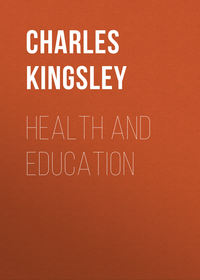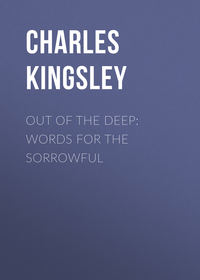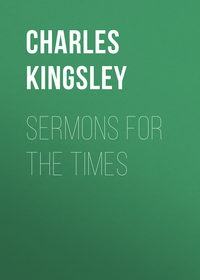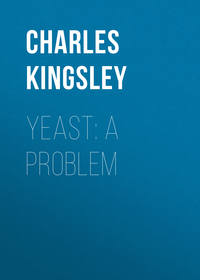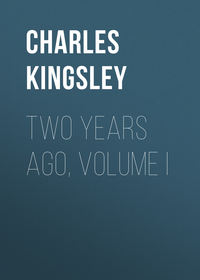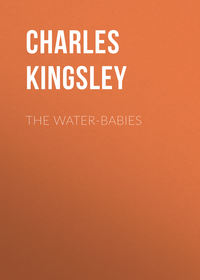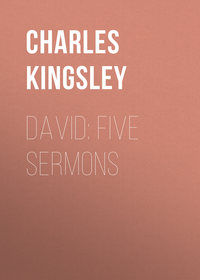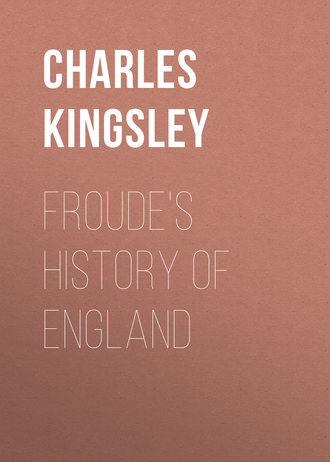
Froude's History of England
But Mr. Froude’s chief text-book seems to have been State Papers and Acts of Parliament. He has begun his work in the only temper in which a man can write accurately and well; in a temper of trust toward the generation whom he describes. The only temper; for if a man has no affection for the characters of whom he reads, he will never understand them; if he has no respect for his subject, he will never take the trouble to exhaust it. To such an author the Statutes at large, as the deliberate expression of the nation’s will and conscience, will appear the most important of all sources of information; the first to be consulted, the last to be contradicted; the Canon which is not to be checked and corrected by private letters and flying pamphlets, but which is to check and correct them. This seems Mr. Froude’s theory; and we are at no pains to confess that if he be wrong we see no hope of arriving at truth. If these public documents are not to be admitted in evidence before all others, we see no hope for the faithful and earnest historian; he must give himself up to swim as he may on the frothy stream of private letters, anecdotes, and pamphlets, the puppet of the ignorance, credulity, peevishness, spite, of any and every gossip and scribbler.
Beginning his history with the fall of Wolsey, Mr. Froude enters, of course, at his first step into the vexed question of Henry’s divorce: an introductory chapter, on the general state of England, we shall notice hereafter.
A very short inspection of the method in which he handles the divorce question gives us at once confidence in his temper and judgment, and hope that we may at last come to some clearer understanding of it than the old law gives us, which we have already quoted, concerning the dog who went mad to serve his private ends. In a few masterly pages he sketches for us the rotting and dying Church, which had recovered her power after the Wars of the Roses over an exhausted nation; but in form only, not in life. Wolsey, with whom he has fair and understanding sympathy, he sketches as the transition minister, ‘loving England well, but loving Rome better,’ who intends a reform of the Church, but who, as the Pope’s commissioner for that very purpose, is liable to a præmunire, and therefore dare not appeal to Parliament to carry out his designs, even if he could have counted on the Parliament’s assistance in any measures designed to invigorate the Church. At last arises in the divorce question the accident which brings to an issue on its most vital point the question of Papal power in England, and which finally draws down ruin upon Wolsey himself.
This appears to have begun in the winter of 1526–27. It was proposed to marry the Princess Mary to a son of the French king. The Bishop of Tarbés, who conducted the negotiations, advised himself, apparently by special instigation of the evil spirit, to raise a question as to her legitimacy.
No more ingenious plan for convulsing England could have been devised. The marriage from which Mary sprang only stood on a reluctant and doubtful dispensation of the Pope’s. Henry had entered into it at the entreaty of his ministers, contrary to a solemn promise given to his father, and in spite of the remonstrances of the Archbishop of Canterbury. No blessing seemed to have rested on it. All his children had died young, save this one sickly girl: a sure note of divine displeasure in the eyes of that coarse-minded Church which has always declared the chief, if not the only, purpose of marriage to be the procreation of children.
But more: to question Mary’s legitimacy was to throw open the question of succession to half a dozen ambitious competitors. It was, too probably, to involve England at Henry’s death in another civil war of the Roses, and in all the internecine horrors which were still rankling in the memories of men; and probably, also, to bring down a French or Scotch invasion. There was then too good reason, as Mr. Froude shows at length, for Wolsey’s assertion to John Cassalis—‘If his Holiness, which God forbid, shall show himself unwilling to listen to the King’s demands, to me assuredly it will be but grief to live longer, for the innumerable evils which I foresee will follow . . . Nothing before us but universal and inevitable ruin.’ Too good reason there was for the confession of the Pope himself to Gardner, ‘What danger it was to the realm to have this thing hang in suspense . . . That without an heir-male, etc., the realm was like to come to dissolution.’ Too good reason for the bold assertion of the Cardinal-Governor of Bologna, that ‘he knew the guise of England as few men did, and that if the King should die without heirs-male, he was sure that it would cost two hundred thousand men’s lives; and that to avoid this mischief by a second marriage, he thought, would deserve heaven.’ Too good reason for the assertion of Hall, that ‘all indifferent and discreet persons judged it necessary for the Pope to grant Henry a divorce, and, by enabling him to marry again, give him the hope of an undisputed heir-male.’ The Pope had full power to do this; in fact, such cases had been for centuries integral parts of his jurisdiction as head of Christendom. But he was at once too timid and too time-serving to exercise his acknowledged authority; and thus, just at the very moment when his spiritual power was being tried in the balance, he chose himself to expose his political power to the same test. Both were equally found wanting. He had, it appeared, as little heart to do justice among kings and princes as he had to seek and to save the souls of men; and the Reformation followed as a matter of course.
Through the tangled brakes of this divorce question Mr. Froude leads us with ease and grace, throwing light, and even beauty, into dark nooks where before all was mist, not merely by his intimate acquaintance with the facts, but still more by his deep knowledge of human character, and of woman’s even more than of man’s. For the first time the actors in this long tragedy appear to us as no mere bodiless and soulless names, but as beings of like passions with ourselves, comprehensible, coherent, organic, even in their inconsistencies. Catherine of Arragon is still the Catherine of Shakspeare; but Mr. Froude has given us the key to many parts of her story which Shakspeare left unexplained, and delicately enough has made us understand how Henry’s affections, if he ever had any for her—faithfully as he had kept (with one exception) to that loveless mariage de convenance—may have been gradually replaced by indifference and even dislike, long before the divorce was forced on him as a question not only of duty to the nation, but of duty to Heaven. And that he did see it in this latter light, Mr. Froude brings proof from his own words, from which we can escape only by believing that the confessedly honest ‘Bluff King Hal’ had suddenly become a consummate liar and a canting hypocrite.
Delicately, too, as if speaking of a lady whom he had met in modern society (as a gentleman is bound to do), does Mr. Froude touch on the sins of that hapless woman, who played for Henry’s crown, and paid for it with her life. With all mercy and courtesy he gives us proof (for he thinks it his duty to do so) of the French mis-education, the petty cunning, the tendency to sensuality, the wilful indelicacy of her position in Henry’s household as the rival of his queen, which made her last catastrophe at least possible. Of the justice of her sentence he has no doubt, any more than of her pre-engagement to some one, as proved by a letter existing among Cromwell’s papers. Poor thing! If she did that which was laid to her charge, and more, she did nothing, after all, but what she had been in the habit of seeing the queens and princesses of the French court do notoriously, and laugh over shamelessly; while, as Mr. Froude well says, ‘If we are to hold her entirely free from guilt, we place not only the King, but the Privy Council, the Judges, the Lords and Commons, and the two Houses of Convocation, in a position fatal to their honour and degrading to ordinary humanity’ (Mr. Froude should have added Anne Boleyn’s own uncle, the Duke of Norfolk, and her father, who were on the commission appointed to try her lovers, and her cousin, Anthony St. Leger, a man of the very highest character and ability, who was on the jury which found a true bill against her). ‘We can not,’ continues Mr. Froude, ‘acquiesce without inquiry in so painful a conclusion. The English nation also, as well as she, deserves justice at our hands; and it cannot be thought uncharitable if we look with some scrutiny at the career of a person who, but for the catastrophe with which it closed, would not have so readily obtained forgiveness for having admitted the addresses of the King, or for having received the homage of the court as its future sovereign, while the King’s wife, her mistress, as yet resided under the same roof.’ Mr. Froude’s conclusion is, after examining the facts, the same with the whole nation of England in Henry’s reign: but no one can accuse him of want of sympathy with the unhappy woman, who reads the eloquent and affecting account of her trial and death, which ends his second volume. Our only fear is, that by having thus told the truth he has, instead of justifying our ancestors, only added one more to the list of people who are to be ‘given up’ with a cynical shrug and smile. We have heard already, and among young ladies too, who can be as cynical as other people in these times, such speeches as, ‘Well, I suppose he has proved Anne Boleyn to be a bad creature; but that does not make that horrid Henry any more right in cutting off her head.’ Thus two people will be despised where only one was before, and the fact still ignored, that it is just as senseless to say that Henry cut off Anne Boleyn’s head as that Queen Victoria hanged Palmer. Death, and death of a far more horrible kind than that which Anne Boleyn suffered, was the established penalty of the offences of which she was convicted: and which had in her case this fearful aggravation, that they were offences not against Henry merely, but against the whole English nation. She had been married in order that there might be an undisputed heir to the throne, and a fearful war avoided. To throw into dispute, by any conduct of hers, the legitimacy of her own offspring, argued a levity or a hard-heartedness which of itself deserved the severest punishment.
We will pass from this disagreeable topic to Mr. Froude’s lifelike sketch of Pope Clement, and the endless tracasseries into which his mingled weakness and cunning led him, and which, like most crooked dealings, ended by defeating their own object. Pages 125 et sqq. of Vol. I. contain sketches of him, his thoughts and ways, as amusing as they are historically important; but we have no space to quote from them. It will be well for those to whom the Reformation is still a matter of astonishment to read those pages, and consider what manner of man he was, in spite of all pretended divine authority, under whose rule the Romish system received its irrecoverable wound.
But of all these figures, not excepting Henry’s own, Wolsey stands out as the most grand and tragical; and Mr. Froude has done good service to history, if only in making us understand at last the wondrous ‘butcher’s son.’ Shakspeare seems to have felt (though he could explain the reason neither to his auditors nor, perhaps, to himself) that Wolsey was, on the whole, an heroical man. Mr. Froude shows at once his strength and his weakness; his deep sense of the rottenness of the Church; his purpose to purge her from those abominations which were as well known, it seems, to him as they were afterwards to the whole people of England; his vast schemes for education; his still vaster schemes for breaking the alliance with Spain, and uniting France and England as fellow-servants of the Pope, and twin-pillars of the sacred fabric of the Church, which helped so much toward his interest in Catherine’s divorce, as a ‘means’ (these are his own words) ‘to bind my most excellent sovereign and this glorious realm to the holy Roman See in faith and obedience for ever’; his hopes of deposing the Emperor, putting down the German heresies, and driving back the Turks beyond the pale of Christendom; his pathetic confession to the Bishop of Bayonne that ‘if he could only see the divorce arranged, the King re-married, the succession settled, and the laws and the Church reformed, he would retire from the world, and would serve God the remainder of his days.’
Peace be with him! He was surely a noble soul; misled, it may be—as who is not when his turn comes?—by the pride of conscious power; and ‘though he loved England well, yet loving Rome better’: but still it is a comfort to see, either in past or in present, one more brother whom we need not despise, even though he may have wasted his energies on a dream.
And on a dream he did waste them, in spite of all his cunning. As Mr. Froude, in a noble passage, says:—
‘Extravagant as his hopes seem, the prospect of realising them was, humanly speaking, neither chimerical nor even improbable. He had but made the common mistake of men of the world, who are the representatives of an old order of things, when that order is doomed and dying. He could not read the signs of the times; and confounding the barrenness of death with the barrenness of winter, which might be followed by a new spring and summer, he believed that the old life-tree of Catholicism, which in fact was but cumbering the ground, might bloom again in its old beauty. The thing which he called heresy was the fire of Almighty God, which no politic congregation of princes, no state machinery, though it were never so active, could trample out; and as, in the early years of Christianity, the meanest slave who was thrown to the wild beasts for his presence at the forbidden mysteries of the Gospel saw deeper, in the divine power of his faith, into the future even of this earthly world, than the sagest of his imperial persecutors,—so a truer political prophet than Wolsey would have been found in the most ignorant of those poor men for whom his police were searching in the purlieus of London, who were risking death and torture in disseminating the pernicious volumes of the English Testament.’
It will be seen from this magnificent passage that Mr. Froude is distinctly a Protestant. He is one, to judge from his book; and all the better one, because he can sympathise with whatsoever nobleness, even with whatsoever mere conservatism, existed in the Catholic party. And therefore, because he has sympathies which are not merely party ones, but human ones, he has given the world, in these two volumes, a history of the early Reformation altogether unequalled. This human sympathy, while it has enabled him to embalm in most affecting prose the sad story of the noble though mistaken Carthusians, and to make even the Nun of Kent interesting, because truly womanly, in her very folly and deceit, has enabled him likewise to show us the hearts of the early martyrs as they never have been shown before. His sketch of the Christian Brothers, and his little true romance of Anthony Dalaber, the Oxford student, are gems of writing; while his conception of Latimer, on whom he looks as the hero of the movement, and all but an English Luther, is as worthy of Latimer as it is of himself. It is written as history should be, discriminatingly, patiently, and yet lovingly and genially; rejoicing not in evil, but in the truth; and rejoicing still more in goodness, where goodness can honestly be found.
To the ecclesiastical and political elements in the English Reformation Mr. Froude devotes a large portion of his book. We shall not enter into the questions which he discusses therein. That aspect of the movement is a foreign and a delicate subject, from discussing which a Scotch periodical may be excused. 1 North Britain had a somewhat different problem to solve from her southern sister, and solved it in an altogether different way: but this we must say, that the facts and, still more, the State Papers (especially the petition of the Commons, as contrasted with the utterly benighted answer of the Bishops) which Mr. Froude gives are such as to raise our opinion of the method on which the English part of the Reformation was conducted, and make us believe that in this, as in other matters, both Henry and his Parliament, though still doctrinal Romanists, were sound-headed practical Englishmen.
This result is of the same kind as most of those at which Mr. Froude arrives. They form altogether a general justification of our ancestors in Henry the Eighth’s time, if not of Henry the Eighth himself, which frees Mr. Froude from that charge of irreverence to the past generations against which we protested in the beginning of the article. We hope honestly that he may be as successful in his next volumes as he has been in these, in vindicating the worthies of the sixteenth century. Whether he shall fail or not, and whether or not he has altogether succeeded, in the volumes before us, his book marks a new epoch, and, we trust, a healthier and loftier one, in English history. We trust that they inaugurate a time in which the deeds of our forefathers shall be looked on as sacred heirlooms; their sins as our shame, their victories as bequests to us; when men shall have sufficient confidence in those to whom they owe their existence to scrutinise faithfully and patiently every fact concerning them, with a proud trust that, search as they may, they will not find much of which to be ashamed.
Lastly, Mr. Froude takes a view of Henry’s character, not, indeed, new (for it is the original one), but obsolete for now two hundred years. Let it be well understood that he makes no attempt (he has been accused thereof) to whitewash Henry: all that he does is to remove as far as he can the modern layers of ‘black-wash,’ and to let the man himself, fair or foul, be seen. For the result he is not responsible: it depends on facts; and unless Mr. Froude has knowingly concealed facts to an amount of which even a Lingard might be ashamed, the result is that Henry the Eighth was actually very much the man which he appeared to be to the English nation in his own generation, and for two or three generations after his death—a result which need not astonish us, if we will only give our ancestors credit for having at least as much common sense as ourselves, and believe (why should we not?) that, on the whole, they understood their own business better than we are likely to do.
‘The bloated tyrant,’ it is confessed, contrived somehow or other to be popular enough. Mr. Froude tells us the reasons. He was not born a bloated tyrant, any more than Queen Elizabeth (though the fact is not generally known) was born a wizened old woman. He was from youth, till he was long past his grand climacteric, a very handsome, powerful, and active man, temperate in his habits, good-humoured, frank and honest in his speech (as even his enemies are forced to confess). He seems to have been (as his portraits prove sufficiently), for good and for evil, a thorough John Bull; a thorough Englishman: but one of the very highest type.
‘Had he died (says Mr. Froude) previous to the first agitation of the divorce, his loss would have been deplored as one of the heaviest misfortunes which had ever befallen this country, and he would have left a name which would have taken its place in history by the side of the Black Prince or the Conqueror of Agincourt. Left at the most trying age, with his character unformed, with the means of gratifying every inclination, and married by his ministers, when a boy, to an unattractive woman far his senior, he had lived for thirty-six years almost without blame, and bore through England the reputation of an upright and virtuous king. Nature had been prodigal to him of her rarest gifts . . . Of his intellectual ability we are not left to judge from the suspicious panegyrics of his contemporaries. His State Papers and letters may be placed by the side of those of Wolsey or of Cromwell, and they lose nothing by the comparison. Though they are broadly different, the perception is equally clear, the expression equally powerful; and they breathe throughout an irresistible vigour of purpose. In addition to this, he had a fine musical taste, carefully cultivated; he spoke and wrote in four languages; and his knowledge of a multitude of subjects, with which his versatile ability made him conversant, would have formed the reputation of any ordinary man. He was among the best physicians of his age. He was his own engineer, inventing improvements in artillery and new constructions in shipbuilding; and this not with the condescending incapacity of a royal amateur, but with thorough workmanlike understanding. His reading was vast, especially in theology. He was ‘attentive,’ as it is called, ‘to his religious duties,’ being present at the services in chapel two or three times a day with unfailing regularity, and showing, to outward appearance, a real sense of religious obligation in the energy and purity of his life. In private he was good-humoured and good-natured. His letters to his secretaries, though never undignified, are simple, easy, and unrestrained, and the letters written by them to him are similarly plain and business-like, as if the writers knew that the person whom they were addressing disliked compliments, and chose to be treated as a man. He seems to have been always kind, always considerate; inquiring into their private concerns with genuine interest, and winning, as a consequence, their sincere and unaffected attachment. As a ruler he had been eminently popular. All his wars had been successful. He had the splendid tastes in which the English people most delighted; . . . he had more than once been tried with insurrection, which he had soothed down without bloodshed, and extinguished in forgiveness . . . And it is certain that if he had died before the divorce was mooted, Henry VIII., like the Roman emperor said by Tacitus to have been censensu omnium dignus imperii nisi imperasset, would have been considered by posterity as formed by Providence for the conduct of the Reformation, and his loss would have been deplored as a perpetual calamity.’
Mr. Froude has, of course, not written these words without having facts whereby to prove them. One he gives in an important note containing an extract from a letter of the Venetian Ambassador in 1515. At least, if his conclusions be correct, we must think twice ere we deny his assertion that ‘the man best able of all living Englishmen to govern England had been set to do it by the conditions of his birth.’
‘We are bound,’ as Mr. Froude says, ‘to allow him the benefit of his past career, and be careful to remember it in interpreting his later actions.’ ‘The true defect in his moral constitution, that “intense and imperious will” common to all princes of the Plantagenet blood, had not yet been tested.’ That he did, in his later years, act in many ways neither wisely nor well, no one denies; that his conduct did not alienate the hearts of his subjects is what needs explanation; and Mr. Froude’s opinions on this matter, novel as they are, and utterly opposed to that of the standard modern historians, require careful examination. Now I am not inclined to debate Henry the Eighth’s character, or any other subject, as between Mr. Froude and an author of the obscurantist or pseudo-conservative school. Mr. Froude is Liberal; and so am I. I wish to look at the question as between Mr. Froude and other Liberals; and therefore, of course, first, as between Mr. Froude and Mr. Hallam.
Mr. Hallam’s name is so venerable and his work so Important, that to set ourselves up as judges in this or in any matter between him and Mr. Froude would be mere impertinence: but speaking merely as learners, we have surely a right to inquire why Mr. Hallam has entered on the whole question of Henry’s relations to his Parliament with a præjudicium against them; for which Mr. Froude finds no ground whatsoever in fact. Why are all acts both of Henry and his Parliament to be taken in malam partem? They were not Whigs, certainly: neither were Socrates and Plato, nor even St. Paul and St. John. They may have been honest men as men go, or they may not: but why is there to be a feeling against them rather than for them? Why is Henry always called a tyrant, and his Parliament servile? The epithets have become so common and unquestioned that our interrogation may seem startling. Still we make it. Why was Henry a tyrant? That may be true, but must be proved by facts. Where are they? Is the mere fact of a monarch’s asking for money a crime in him and his ministers? The question would rather seem to be, Were the moneys for which Henry asked needed or no; and, when granted, were they rightly or wrongly applied? And on these subjects we want much more information than we obtain from any epithets. The author of a constitutional history should rise above epithets: or, if he uses them, should corroborate them by facts. Why should not historians be as fair and as cautious in accusing Henry and Wolsey as they would be in accusing Queen Victoria and Lord Palmerston? What right, allow us to ask, has a grave constitutional historian to say that ‘We cannot, indeed, doubt that the unshackled and despotic condition of his friend, Francis I., afforded a mortifying contrast to Henry? What document exists in which Henry is represented as regretting that he is the king of a free people?—for such Mr. Hallam confesses, just above, England was held to be, and was actually in comparison with France. If the document does not exist, Mr. Hallam has surely stepped out of the field of the historian into that of the novelist, à la Scott or Dumas. The Parliament sometimes grants Henry’s demands: sometimes it refuses them, and he has to help himself by other means. Why are both cases to be interpreted in malam partem? Why is the Parliament’s granting to be always a proof of its servility?—its refusing always a proof of Henry’s tyranny and rapacity? Both views are mere præjudicia, reasonable perhaps, and possible: but why is not a præjudicium of the opposite kind as rational and as possible? Why has not a historian a right to start, as Mr. Froude does, by taking for granted that both parties may have been on the whole right; that the Parliament granted certain sums because Henry was right in asking for them; refused others because Henry was wrong; even that, in some cases, Henry may have been right in asking, the Parliament wrong in refusing; and that in such a case, under the pressure of critical times, Henry was forced to get as he could the money which he saw that the national cause required? Let it be as folks will. Let Henry be sometimes right, and the Parliament sometimes likewise; or the Parliament always right, or Henry always right; or anything else, save this strange diseased theory that both must have been always wrong, and that, evidence to that effect failing, motives must be insinuated, or openly asserted, from the writer’s mere imagination. This may be a dream: but it is as easy to imagine as the other, and more pleasant also. It will probably be answered (though not by Mr. Hallam himself) by a sneer: ‘You do not seem to know much of the world, sir.’ But so would Figaro and Gil Blas have said, and on exactly the same grounds.


